Father Bruce G. Douglas
Where the Church Comes to You
Our Vision
Our vision is to manifest the Kingdom of God to the nations of the world and express the fullness of the Gospel of Jesus Christ. With Sacred Scripture and the Sacred Traditions of the Church as our guide, we seek to experience the full nature of the living, historic Catholic Church in its sacramental communion with a personal God, its charismatic joy in the Spirit, and its evangelical zeal to share our blessed hope and the Good News of Jesus Christ with all people.
It is the mission of the Old Catholic Paulists to serve God's people "where they are," both physically and spiritually, just as our Patron, Paul the Apostle, served.
"What is the Old Catholic Church?"
The Old Catholic Church is part of the One, Holy, Catholic, and Apostolic Church as founded by Jesus Christ. The Old Catholic Church broke off from the Roman Catholic Church after Vatican I in the 1870s. The primary reason for the break-off was the Pope at that time centralized all Church authority to himself (dogma of Papal Infallibility -"Causa Finita Est.") instead of the time-honored tradition of the "Infallibility of Bishops in General Council" having authority over the Church. Church Councils have made decisions since the Council of Jerusalem in Acts 15:1-29.
The Old Catholic Church holds and keeps Catholic Tradition as established by the Apostles in the First Century. We are truly 'Apostolic' and, therefore, truly 'Old' Catholic. We reject man-made political agendas and regulations. We do not come under the direct authority of the Pope in Rome but under the authority of the Presiding Bishop of our jurisdiction, who 'holds and keeps' Apostolic Succession through both the Holy See of Rome (Roman Catholic Church) and the Holy See of Antioch (Eastern Catholic Church). Both of these Holy Sees was founded by the Apostle Saint Peter ("upon this rock, I will build My Church" – Matthew 16:18.) So, as Old Catholic Priests, we trace our lineage and our ecclesiastical authority to Saint Peter.
The Catholic (universal) Church is made up of sister congregations:
- Roman Catholic
- Old Catholic
- Eastern' sui iuris' and Eastern Greek Orthodox
- "Oriental" Churches, such as Coptic, Syrian, and "Nestorian" Churches.
The term "Old Catholic" is simply an adherence to the beliefs and practices of the post-Apostolic era Church tracing their Apostolic Succession through the Apostles to the Roman Catholic Church, participate in the full sacramental ministry of the Church.
Some of the questions often asked about Old Catholics:
Does the Roman Catholic Church recognize the Sacraments of the Old Catholic Church?
Yes. (Canon. 845 §1,2) The Code of Canon Law of the Roman Catholic Church states: "The sacraments of baptism, confirmation, and orders cannot be repeated since they imprint a character."
Is the Catholic wedding valid performed outside the Church?
Yes, it is. According to (Canon 1118,§ 2,3,) The Code of Canon Law of the Roman Catholic Church: It is left at the discretion and decision of the Ordinary to authorize a wedding outside the Church in any suitable place. But, in our Old Catholic tradition, it is authorized.
Canon 1752 has been referred to as the "golden rule" of Church law. It states: "The salvation of souls, which must always be the supreme law in the Church, is to be kept before one's eyes."
Is a marriage between a baptized Catholic and a non-Catholic legal and valid?
Yes, a marriage between a Catholic and non-Catholic couple is valid and legal, according to the Code of Canon Law 1118 §3 of the Vatican.
Ancient Recognitions:
+ Utrecht received Rights of Autonomy from Blessed Pope Eugene III in 1145.
+ This right was confirmed in 1215 at the Fourth Lateran Council (Canons 23 and 24). In 1520, Pope Leo X decreed in his papal bull Debitum Pastoralis that the Bishop of Utrecht, his successors, his clergy, and his laity were exempt from trial by an external tribunal of canon law in perpetuity and that any such proceedings would be ipso facto null and void. This autonomy became known as Leonine Privilege.
+ Privilege was subsequently reconfirmed in two Church Councils in 1520 and 1717.
Roman Catholics and others will often ask, what is your relationship with the Roman Catholic Church now?
Recent Recognitions:
+ "Dominus Iesus" issued by the Roman Catholic Magisterium in 2000, signed by Pope John Paul II on June 16, and Cardinal Joseph Ratzinger on August 6, states: "The Churches which, while not existing in perfect communion with the [Roman] Catholic Church, remain united to her by means of the closest bonds, that is, by apostolic succession and a valid Eucharist, are true particular Churches."
"Therefore, these separated Churches and communities as such ... have by no means been deprived of significance and importance in the mystery of salvation. For the Spirit of Christ has not refrained from using them as means of salvation which derive their efficacy from the very fullness of grace and truth entrusted to the Catholic Church". IV. Unicity and Unity of the Church, 17
+ Pope Francis
(Vatican - October 30, 2014)
Old Catholic Church members met with Pope Francis in the latest of a continuing ecumenical dialogue between the Old Catholic Church and the Roman Catholic Church.
Pope Francis explained that since the Second Vatican Council, "It has been possible to build new bridges of a more profound mutual understanding and practical co-operation between the Old Catholic Church and the Roman Catholic Church."
"There is a thirst for God," the Pope stated. "There is a profound desire to recover a sense of purpose in life. There is an urgent need for a convincing witness to the truth and values of the Gospel." He suggested that the two communions can "support and encourage one another, especially at the level of parishes and local communities."
* The Catholic Almanac:
"The Roman Church recognizes the validity of Old Catholic Orders and other Sacraments." Felican A. Roy, OFM, 1974; p. 368.
* The Catholic Dictionary by Donald Attwater, bearing the "imprimatur" of Cardinal Hayes of New York:
States of the Old Catholic Church - "Their orders and sacraments are valid."
* Separated Brethren:
"We have no reason to doubt that the Old Catholic Orders are valid. The Apostolic Succession does not depend on the obedience to the See of Peter but rather on the objective line of succession from Apostolic sources, the proper manner and form, and the proper intention. Likewise, Old Catholic bishops are bishops in Apostolic Succession. The Old Catholics, like the Orthodox, possess a valid priesthood." William J. Whalens, pp. 204, 248.
The Old Catholic Church administers the Sacraments, which one may be familiar with. We are perhaps 90% the same as one may be used to.
The exceptions that we offer are:
"Open Communion" - Communion is offered to, and encouraged to be received by, all Believing Christians.
"General Absolution" - During the Penitential Rite of Mass, a moment is taken to confess sins silently and personally to God. Then, the Priest grants General Absolution, or one may choose to confess to a Priest in person.
"Sacraments" - Maybe administered outside the confines of the Church.
"Holy Orders" - Are open to Married and Single Clergy. Another question often asked is, how can a priest be married? Clerical celibacy is a discipline, not a doctrine. Pope John Paul II stated in 1993 publicly that "celibacy is not essential to the priesthood." For the first thousand years of the Christian Church, priests, bishops, and even popes could — and often did — marry. A number of popes were married men in those first thousand years of the Church, and two were the sons of previous popes. The ideal of celibacy existed but as a teaching from the Apostle Paul, not a church doctrine. In 305 A.D., the Council of Elvira in Spain, while not forbidding marriage, passed the first decree on celibacy for all bishops, priests, and those who served at the altar. The Ecumenical Council of Nicea in 325 decreed that a priest could not marry after ordination. Pope Siricius, A.D 385, commanded celibacy for bishops, priests, and deacons. In A.D 1123, the First Lateran Council forbade clergy to marry and decreed that those who had must dissolve their unions. None of these edicts were decisions by an ecumenical council of all the Christian Churches in Apostolic Succession.
In the United States, most people associate Catholicism with Roman Catholic. But the Catholic Church is a communion of "23 churches," each recognizing the leadership of the Pope while maintaining their own distinctive identities and disciplines. For example, the Latin Church, commonly known as the Roman Catholic Church, has a discipline of mandatory priestly celibacy; most Eastern Catholic Churches do not.
"Holy Matrimony" - Is offered to those who have been previously married, without pre-condition. No Roman Catholic Church Annulment is required. We define marriage as a holy covenant between a man and a woman. We believe that marriage is a Sacrament, but divorce and remarriage are realities. We do not believe that divorce is an "unforgivable sin," nor do we believe that divorce should bar anyone from the ministry and the Sacraments of the Church.
We oppose abortion without question.
We work with mostly 'displaced Catholics,' those who have left the Church for any number of reasons. We are here to serve them when they need a Priest, without question or condition. Ours is an 'Urban/Suburban Missionary Ministry.'
Serving Those in Need
"We are an Independent Catholic Family of Faith"
We in the Old Catholic Church understand that there are many who do not belong to a specific church or denomination or who feel alienated from a former church that they have belonged yet are in need of a Priest to perform a Catholic Service, such as a Baptism, Reconciliation, Holy Communion, Marriage, Anointing, Funeral Service, or Home Blessing.
We also understand that not all may be very "religious" and that their needs and requests may differ from the "traditional" Catholic Service. We know that planning for any Service is hard enough without a Priest adding additional requirements or demands. We are flexible and willing to work with the faithful and accommodate their individual needs and desires; within the context of Christian worship.
Should the occasion arise when you or a family member require a Priest to perform a Catholic Service, please call, and we will be glad to serve those in need.
Please see all the services available on this site. In addition, we are available to serve you by offering Services at your home, a reception or banquet venue, parks or beaches, funeral homes, cemeteries, or another place of your choosing.
All clergy are autonomous, not receiving a salary from the Church.
For more information, please visit our Orders website:
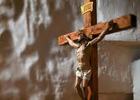
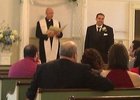
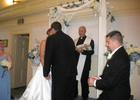



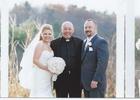

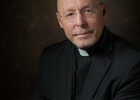

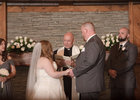
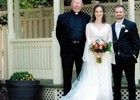
Services
- Baptism
- Confirmation
- Reconciliation
- Holy Communion
- Marriage
- Anointing of the Infirm
- Funeral or Memorial Services
- Nursing Home and Hospice Services
- Home Masses
- Home or Business Blessings
- Emergencies